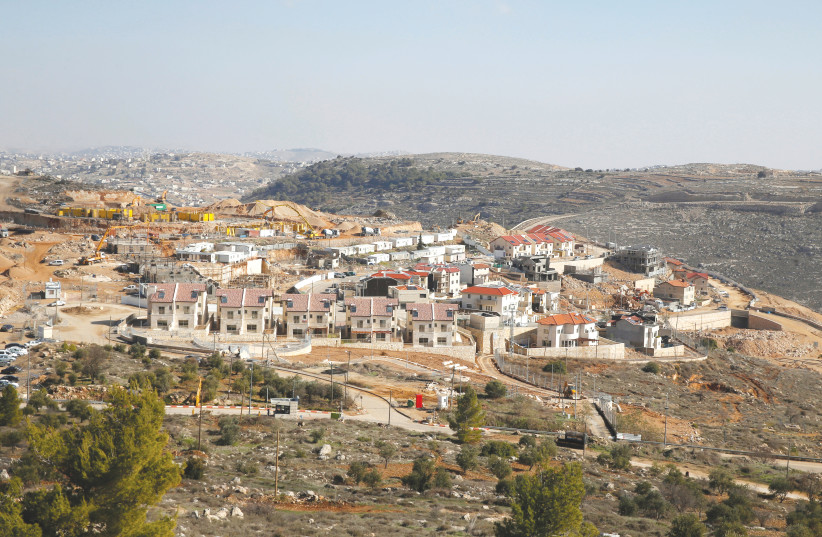According to a new report published by the Population Registry at the Interior Ministry of the State of Israel, the population of West Bank residents has increased by 15.1% since 2019, from 449,508 to 517,407.
The population constitutes 7.2% of Israel’s Jewish population, and if Jews living in east Jerusalem were included in the statistics, the sector would constitute over 10% of the total Jewish population. There are currently 340,000 Jewish residents in east Jerusalem.
The report details the population change in each settlement in the West Bank and each neighborhood in east Jerusalem.
In the Knesset, 11 lawmakers live in the West Bank, comprising 9.2% of parliament, compared to the seven West Bank residents of 2020. Prominent Knesset members who reside in the West Bank include current cabinet secretary Yossi Fuchs, Finance Minister Bezalel Smotrich, and Internal Security Minister Ben Gvir.
In the IDF, between 40 and 50% of IDF Officers Course graduates are originally from the West Bank.

According to Israel’s Central Bureau of Statistics (CBS) Well-Being Indicators Index, Jewish residents of the West Bank surpass national averages in 39 criteria, illustrating an emphasis on strong character development and civic engagement. Statistics also show lower rates of overweight first-graders, higher levels of community satisfaction, and increased engagement in volunteer work and community service.
Change in sentiment after October 7
After Israel captured the West Bank in the Six-Day War in 1967, two schools of thought emerged. The first regarded the West Bank and Gaza as negotiable assets to be relinquished to Palestinian Arabs as part of a peace agreement.
The other camp sought to correct past injustices inflicted on Jews through Jewish resettlement and restoration of Jewish sovereignty over the territories.
After the October 7 massacre, many of those who believed that the land should be relinquished to Palestinian Arabs as part of a peace agreement changed their positions after the brutality of the massacre.
Many of those who believed a peace agreement was possible with the Palestinians no longer believe so anymore. It is probable that fewer people oppose Jewish residence in the West Bank since the attack. Although many have changed their position, the issue remains controversial, and many Israelis and members of global leadership oppose Jewish residence in the West Bank for a variety of reasons.
